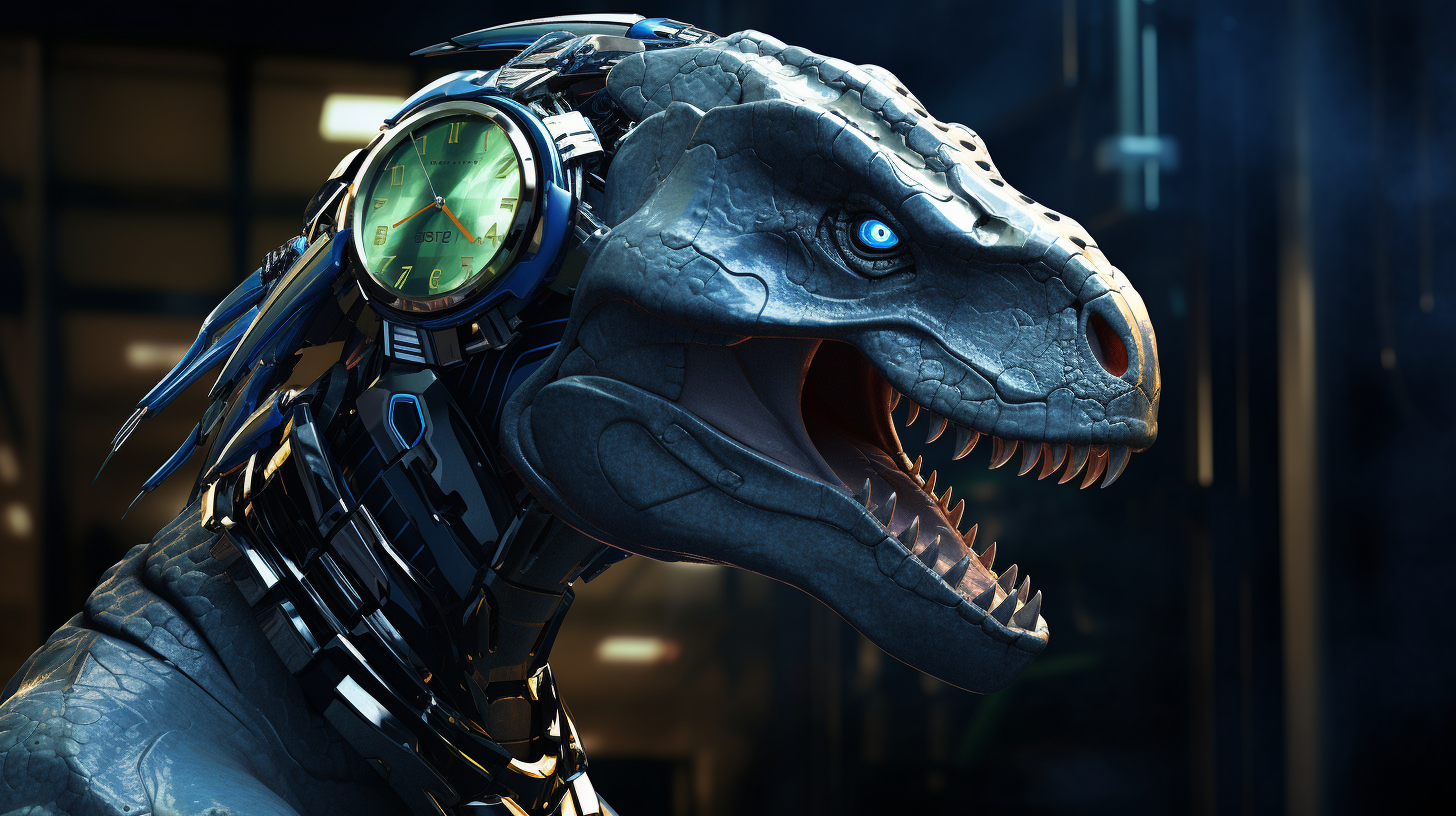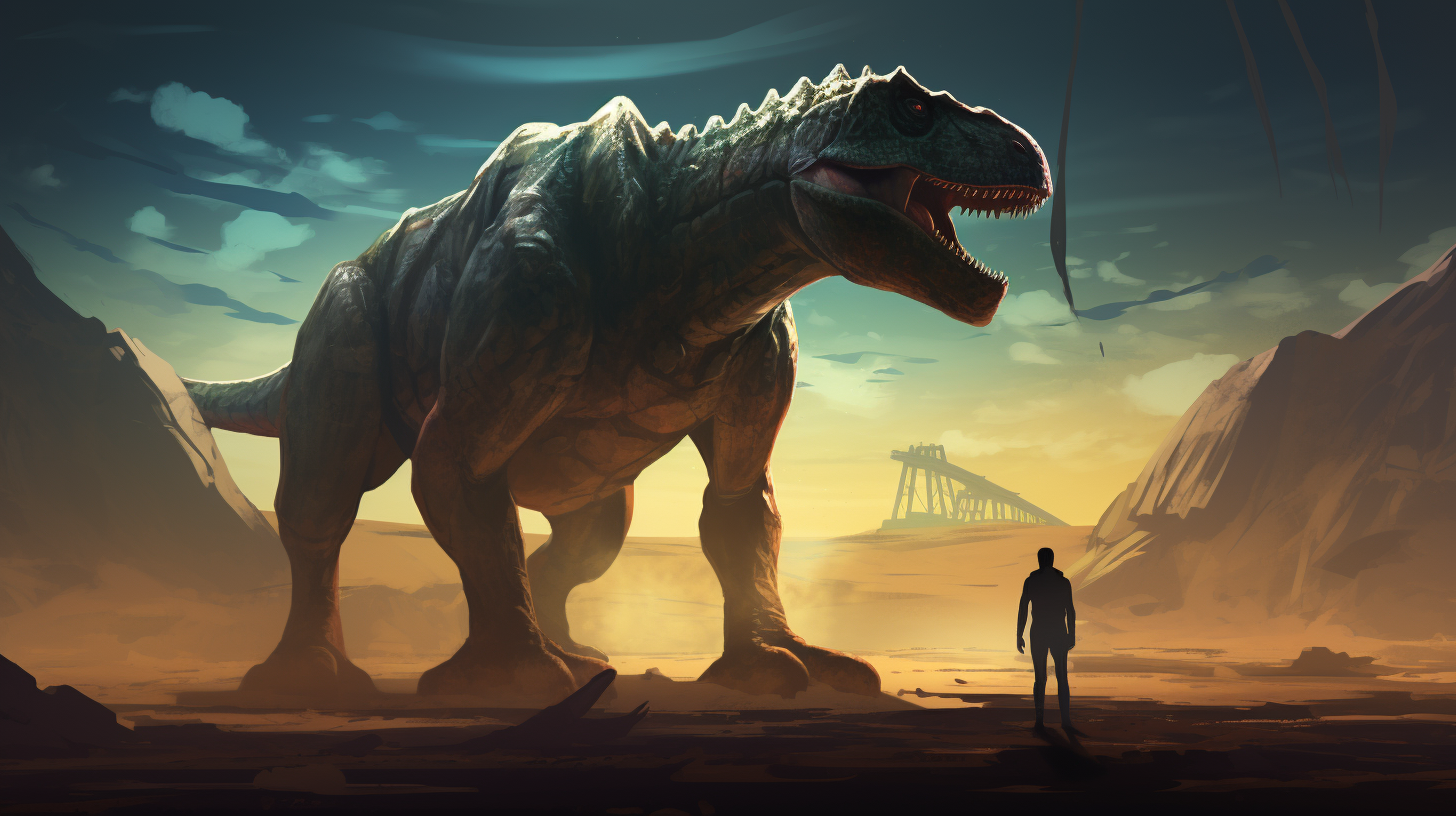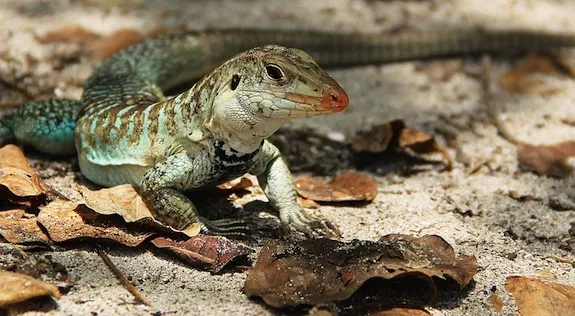What If Dinosaurs Survived Extinction?

One of many inspirations for this post
Embarking on a journey through Brian Cox's insights on the Fermi Paradox and extraterrestrial life, an intriguing question arises: What if the dinosaurs hadn't faced their cataclysmic end? About 66 million years ago, the dinosaurs, who had roamed our planet for over 150 million years, were wiped out by what is widely believed to be a massive asteroid impact combined with volcanic activity. This extinction event paved the way for mammals and, eventually, humans to dominate the Earth. But imagine a world where this event never occurred, allowing dinosaurs an extra 66 million years to evolve. Could these ancient behemoths have developed intelligence comparable to or surpassing that of humans? This speculative journey offers a unique window into alternative evolutionary paths, shedding light on the broader questions of intelligence and civilization, both on Earth and in the vast cosmos.
The Time Advantage

Reiner's 2023 study in the Journal of Comparative Neurology delves into this thought experiment. It speculates that some theropod dinosaurs, given the right evolutionary pressures and time, might have developed cognitive abilities comparable to those of humans. This hypothesis challenges the commonly held notion that intelligence of the magnitude seen in humans is a rare occurrence in evolutionary history.
Imagining this alternate timeline involves more than just considering dinosaurs with enhanced brainpower. It's about reimagining the entire ecosystem in which these creatures would have existed. Would the presence of intelligent dinosaurs have stifled the development of other species, including mammals? Or would it have led to a unique co-evolutionary path, with both dinosaurs and mammals reaching new evolutionary heights?
Moreover, the study by Herculano-Houzel in the same journal provides an intriguing perspective on the neurological capacity of theropods. It suggests they had neuron counts in their telencephalic region, a part of the brain associated with higher cognitive functions, that were similar to primates. This revelation opens up the possibility that dinosaurs could have developed complex social structures, sophisticated communication systems, and even rudimentary forms of tool use and problem-solving, paralleling the evolutionary journey of primates towards intelligence.
Mammals in the Shadow of Dinosaurs

In a world where dinosaurs did not face extinction, the evolutionary trajectory of mammals, including humans, would have been profoundly different. In our current history, the extinction event that ended the reign of dinosaurs provided a vital opening for mammals to flourish and eventually become the dominant life form on Earth. But in this alternate reality, mammals would have coexisted with these formidable reptiles for millions of years.
The question then arises: Would mammals have still ascended to the top of the food chain? Or would they have remained in the shadows, evolving under the constant threat and competition posed by the dominant dinosaurs? This scenario challenges the very notion of mammalian dominance and opens up a myriad of evolutionary pathways that could have led to drastically different outcomes for both dinosaurs and mammals.
One could speculate that in the face of such competition, mammals might have evolved unique adaptations for survival. These adaptations could range from enhanced camouflage and nocturnal habits to more advanced cognitive abilities for problem-solving and evasion. The continuous pressure to coexist with or evade highly intelligent dinosaurs could have catalyzed an evolutionary arms race, driving rapid innovation in mammalian physiology and behaviour.
However, it is also conceivable that the overwhelming dominance of dinosaurs could have stifled mammalian evolution, limiting their potential for diversification and advancement. In such a world, the evolutionary story of mammals, including the lineage that led to humans, might have been cut short or redirected towards a completely different narrative, one where our own existence as the planet's dominant species is nothing more than a distant evolutionary possibility.
Communication and Intelligence

In an alternate world where dinosaurs continued to evolve, the development of communication and intelligence would be pivotal elements to consider. The evolutionary pressure to survive and thrive could have led to the emergence of complex communication systems among dinosaurs. This speculation isn't without scientific backing. The research by Herculano-Houzel, suggesting theropod dinosaurs had neuron counts similar to primates, hints at the potential for complex brain functions.
Envisioning how dinosaurs might have communicated involves a blend of paleontological science and creative speculation. Would their communication have been primarily vocal, using calls and songs like birds, their closest living relatives? Or might they have developed a more visual form of communication, using colour changes, as seen in some reptiles? The development of a sophisticated communication system could have been a precursor to more advanced social structures and even the rudiments of culture.
Their environment and physical capabilities would have likely shaped the evolution of intelligence in dinosaurs. With formidable size and strength, intelligence could have evolved not for tool use, as in humans, but perhaps for strategic hunting, navigation of complex terrains, or intricate social interactions within their species. This intelligence could have manifested in different forms compared to mammals, shaped by the unique selective pressures and ecological niches that dinosaurs occupied.
Reflecting on these possibilities not only fuels the imagination but also provides insights into the diverse paths intelligence could take in the evolutionary process. It underscores the fact that intelligence, as we understand it in humans, is just one outcome of a myriad of evolutionary possibilities.
Curiosity and the Pursuit of Knowledge

In a world where dinosaurs continued their evolutionary journey, one can't help but ponder whether they would develop a natural curiosity towards their environment, leading to the dawn of science among these ancient creatures. This curiosity, as observed in humans, is often the catalyst for technological and scientific advancements.
Initially, dinosaur curiosity might have been driven by basic survival needs: understanding migration patterns, weather changes, or finding new food sources. As their intelligence evolved, as suggested by Herculano-Houzel's findings on neuron counts, this curiosity could have taken more sophisticated forms, possibly leading to the early stages of scientific thought and exploration.
The physical attributes of dinosaurs would have significantly influenced their approach to science and technology. Without opposable thumbs or similar appendages, their tool usage and creation would have been vastly different from humans. Perhaps they would have developed ways to manipulate their environment using their mouths, tails, or even through cooperation in ways we can't easily fathom.
Their size and strength could have led them to interact with their environment on a much larger scale than humans. Engineering and architectural endeavours, if they arose, would have been tailored to their massive forms, leading to monumental structures or environmental modifications that would leave a lasting impact on the planet.
The evolution of a scientific mindset in dinosaurs might have also altered their predator-prey dynamics. With increased intelligence, they could have shifted from brute-force hunting strategies to more strategic approaches, possibly even leading to a decrease in predatory behaviours as they found alternative food sources.
Ultimately, the development of a curious, scientifically minded dinosaur species raises profound questions about the nature of intelligence and technology. It suggests that the trajectory towards a scientifically advanced civilization could arise in many forms, challenging our human-centric view of technological progress and intelligence.
Predator, Prey, and Society

The continued existence of dinosaurs, had they not faced extinction, presents a compelling question about the predator-prey dynamics in their ecosystem. Would these massive creatures have continued with the predator-prey life cycle as we understand it from their fossil records, or would their extended evolutionary journey have led to more complex societal structures?
In a world where dinosaurs continued to evolve, one might imagine that their predatory instincts would also evolve. However, with the potential for increased intelligence, as suggested by Herculano-Houzel's study on neuron counts in theropods, their approach to predation could have become more strategic and less reliant on physical prowess alone.
As reptilian intelligence is further understood, studies like those highlighted by Smithsonian Magazine reveal that reptiles are far more intelligent than previously thought, capable of complex problem-solving and perhaps even social behaviours that were once overlooked. This could imply that dinosaurs, too, might have developed intricate social structures, potentially rivalling those of some mammalian species.
The presence of intelligent dinosaurs would have had a significant impact on other species, particularly mammals. The competition for resources and space might have led to an intense co-evolutionary arms race, pushing both groups towards greater adaptability and intelligence.
With enhanced cognitive abilities, dinosaurs might have shifted from brute force hunting tactics to more nuanced ones, potentially developing cooperative hunting methods akin to those seen in some modern predators.
The prolonged dominance of intelligent dinosaurs would have inevitably shaped the ecosystems they inhabited. Their role as apex predators or potentially even as keystone species would have had far-reaching effects on the biodiversity and ecological balance of their habitats.
If dinosaurs had developed complex social structures, how would these have looked? Could there have been hierarchies, cooperative breeding, or even proto-cultures? While speculative, these questions invite us to reconsider our views on the social capabilities of reptilian species, further informed by recent findings on reptilian cognition.
Implications for the Fermi Paradox

Exploring the possibility of an Earth where dinosaurs evolved into intelligent beings leads to profound reflections on the Fermi Paradox. This paradox, which highlights the discrepancy between the high probability of extraterrestrial life and the lack of evidence for or contact with such life, becomes even more intriguing under the lens of dinosaur intelligence. If Earth could have fostered a radically different intelligent species, it raises questions about the diversity of life that might exist elsewhere in the universe.
In this speculative scenario, the concept of intelligence and civilization as we know it is fundamentally challenged. Dinosaurs, had they developed advanced intelligence, would represent a form of intelligent life that is drastically different from humans. This redefines the parameters of what we might consider intelligent life in the cosmos. The evolution of dinosaurs into a technologically advanced civilization would significantly expand our understanding of the potential forms and behaviours of intelligent beings in the universe.
This thought experiment also has implications for the methods we use to search for extraterrestrial life. The technological markers and environmental impacts we associate with advanced civilizations are based on human activities. However, an intelligent dinosaur species might have interacted with their environment in entirely different ways, suggesting that the signs of extraterrestrial civilizations we search for might need to be broader and more varied.
Furthermore, the possibility of dinosaur intelligence provides a new perspective on the rarity of technological civilizations in the universe. If Earth could have produced two radically different intelligent species, it might imply that the emergence of technological civilizations is not as rare as we currently think. This could influence how we interpret the Drake Equation, which is used to estimate the number of communicative extraterrestrial civilizations in our galaxy.
Engaging in this speculative astrobiology not only fuels our imagination but also broadens the scope of scientific inquiry. It encourages a more expansive view of life's possibilities, considering how different environmental and biological conditions could lead to diverse forms of intelligence and civilization.
Lastly, pondering a world where dinosaurs evolved into intelligent beings leads to deeper philosophical considerations about our place in the universe. It challenges our understanding of uniqueness and prompts us to reflect on the nature of intelligence, both on Earth and beyond. Such contemplations resonate with the core of the Fermi Paradox, emphasizing the vast and mysterious nature of our cosmos and the endless possibilities it harbours.
Conclusion

As we conclude this speculative journey into a world where dinosaurs might have evolved into intelligent beings, it's essential to acknowledge an equally plausible scenario: over those 66 million years, perhaps not much would have fundamentally changed in the way of dinosaur evolution. It’s conceivable that dinosaurs, like many animal species, would have continued in a cycle of growth and decline, primarily driven by the basic ecological principles of supply and demand for food. In this scenario, the evolutionary trajectory of dinosaurs might have remained anchored in the realm of physical adaptation, without a significant leap towards the development of curiosity and innovation.
This reflection leads to a broader contemplation about the nature of intelligence and technological advancement in the universe. Perhaps the kind of curiosity-driven intelligence that led to human technological civilization is not the norm but an exception. Maybe most intelligent life in the galaxy, if it exists, never crosses the threshold into technology and innovation. This could be one of the reasons why we haven't encountered extraterrestrial civilizations. The silence we observe in the cosmos might be a reflection of a universe where life, while potentially abundant, does not typically develop the kind of curiosity and capability for technological advancement that characterizes humanity.
Such a perspective offers a humbling view of our place in the cosmos. It suggests that the human experience, with our deep-seated curiosity, relentless pursuit of knowledge, and the resulting technological marvels, might be a rare gem in a vast universe. This rarity could be both a cause for celebration of our unique journey and a prompt for introspection about our responsibilities as a potentially unique form of intelligent life.
In the end, whether dinosaurs could have evolved into a civilization of their own or remained creatures of instinct and physical prowess, the exercise of exploring these possibilities is valuable. It stretches our understanding of evolution, intelligence, and the potential diversity of life both on Earth and across the galaxy. As we continue to search for signs of life beyond our planet, these speculations remind us of the boundless possibilities that the universe may hold, and the wonder that comes with our quest to understand it.
References




